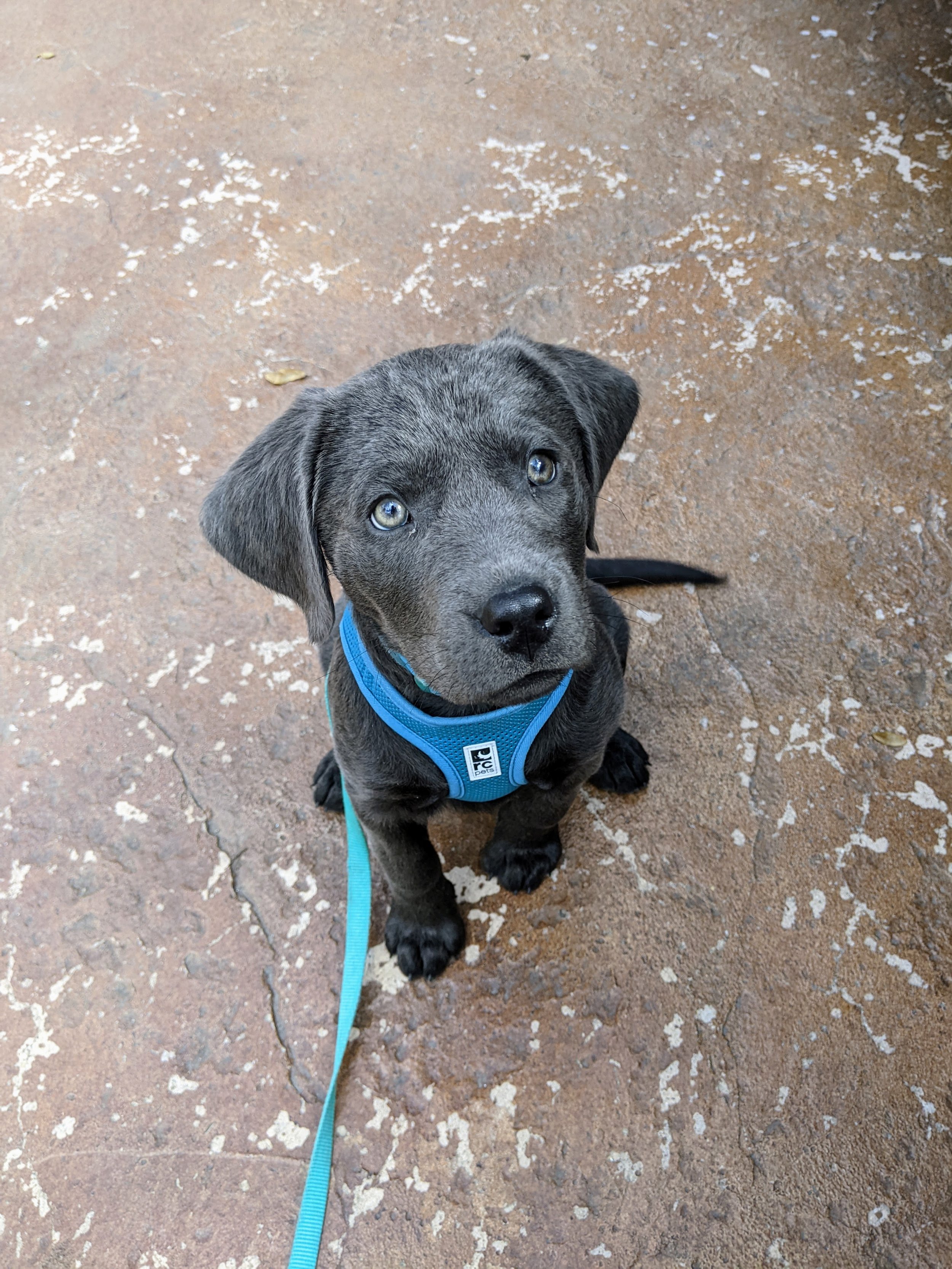Puppies and Potty Bells
When it comes to potty training a puppy, knowing when the puppy needs to toilet is essential for success. If you know he needs to go, you can get him to the right location on time.
It’s easy to believe that giving the puppy an obvious way to say, “pardon me, good madam, but I need to toilet,” would be a big help in this department. (Potty bells hung on the backdoor are usually the signal of choice.)
You might be surprised, then, that although I am not diametrically opposed to potty bells, as a professional dog trainer, they aren’t part of my potty training arsenal.
Why? In a nutshell, you have to be careful and they don’t work as fast as you might think.
Being Careful
I don’t fancy being the dog’s personal doorman — there to open the backdoor any time he wants to sniff the air, chase the squirrels or bark at the neighbors. Therefore, he must learn that potty bells only equal “I need to toilet,” not “I need the door open.”
Being Slow
If you, too, care about that distinction (and even if you don’t), you have to operate as if the bells don’t exist when teaching them: it’s all human initiated. You keep track of how long since the last toilet trip, you go get the puppy when it’s time, you go out with him to make sure he goes, etc.
You can’t actually rely on Puppy to initiate the toileting sequence by ringing the bells.
IMO, if you’re doing all that, why have the bells?
(How long you have to maintain the initiative depends on your goals (“door open,” or “I need to toilet”?), your individual puppy, your puppy’s age, and the layout of your home.)
Potty training a puppy is usually pretty straightforward, but it’s not as simple as giving Puppy an overt way to request access to the yard. Just because he understands ringing the bell makes the door open, doesn’t mean:
he will ring the bell when he needs to toilet
he will only ring the bell when he needs to toilet
he understands the backyard is the toilet (and not the house)

